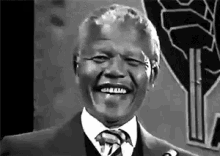Strategic Leadership Analysis
Mandela archetypes absorb personal cost to unite rival factions. You model forgiveness without erasing accountability, and you reframe justice as a shared future rather than a zero-sum fight. People follow because you offer both hope and structure.
Strengths
- Centers empathy even in high-conflict environments
- Earns trust across diverse communities
- Models forgiveness without losing accountability
- Converts lived experience into moral authority
- Builds inclusive narratives that heal divisions
Pressure Points
- May carry burdens quietly, risking burnout
- Forgiveness can be misread as leniency
- Relies on patience when urgent change is demanded
- Struggles delegating conflict-heavy tasks
- Needs allies who enforce boundaries and safety
Relationship Operating System
You need partners who protect your energy and share responsibility for care. Mutual vulnerability keeps gratitude from becoming dependency.
Deployment Zones
Restorative justice, civic leadership, DEI strategy, community mediation, social entrepreneurship
Leadership Lessons to Apply Today
Let others carry parts of the mission. Rest openly, accept help, and set limits so your example remains sustainable.



